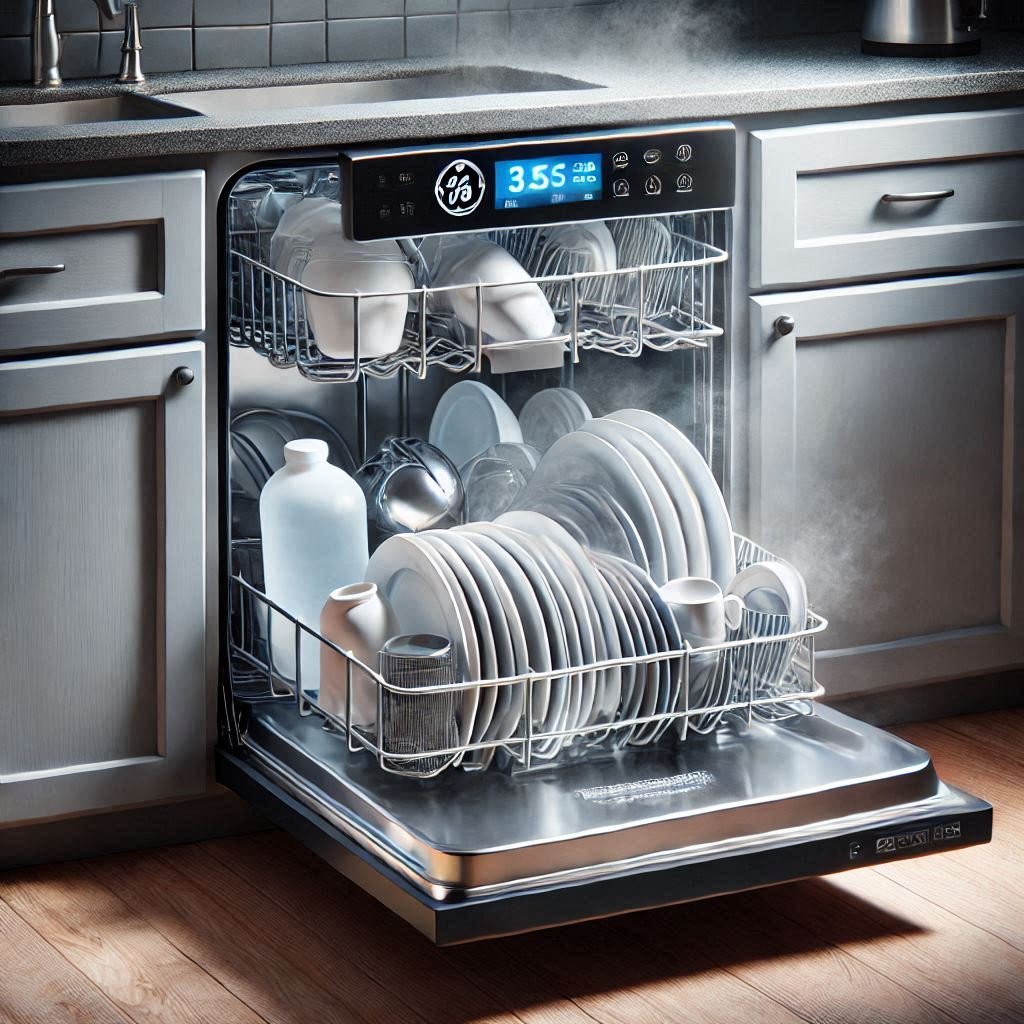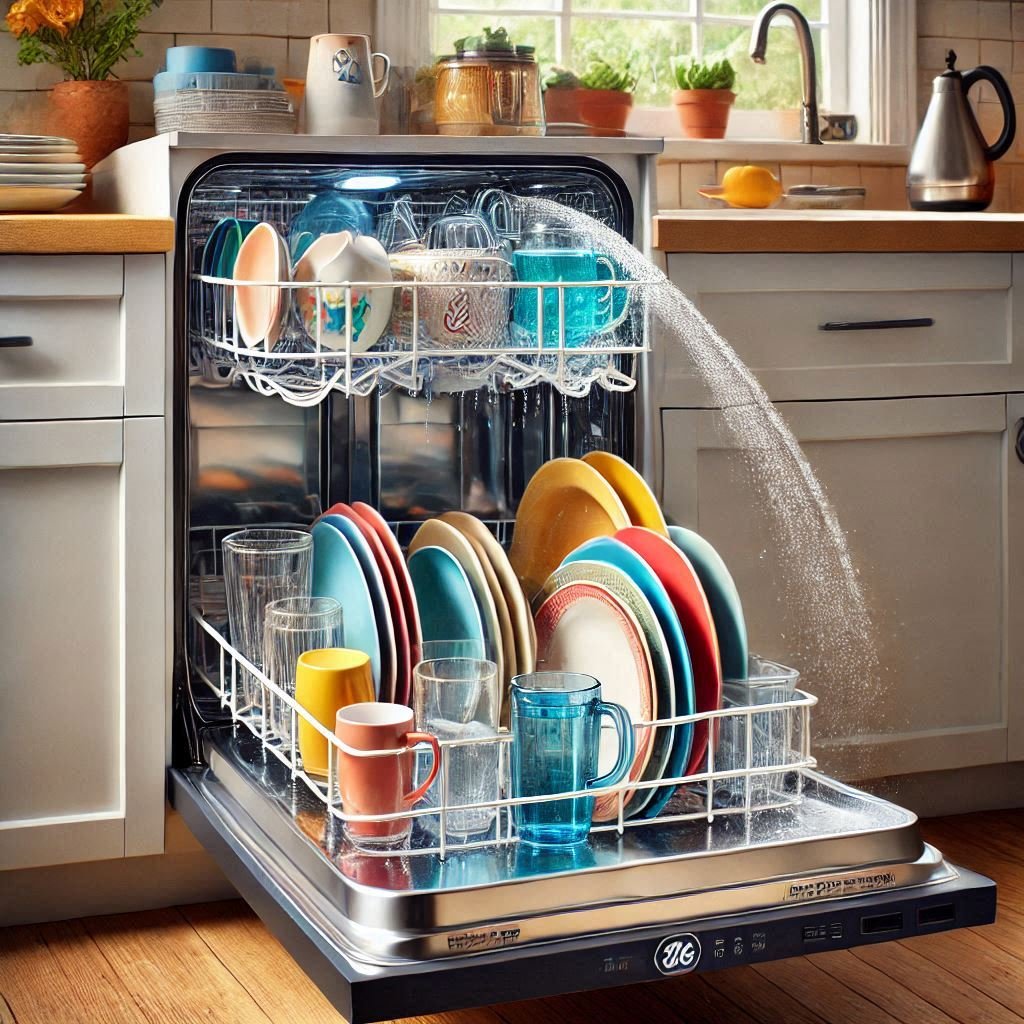Is your GE dishwasher not filling with water? This issue can be quite frustrating, especially when you’re relying on your dishwasher to save time and effort. There are several reasons why this might be happening, ranging from simple fixes you can do yourself to more complex problems that might require a professional’s touch.
In this article, we’ll explore common causes and provide step-by-step solutions to get your dishwasher back to working order. Let’s dive into the main culprits and fixes for a GE dishwasher not filling with water.

Table of Contents
Common Causes of a GE Dishwasher Not Filling with Water
Understanding the root cause is the first step towards solving the problem. Here are some common reasons your GE dishwasher might not be filling with water:
- Water Supply Issues: The water supply might be turned off or there could be a kink in the water hose.
- Float Switch Problems: If the float switch is stuck or faulty, it can prevent water from entering the dishwasher.
- Inlet Valve Malfunction: The inlet valve controls water flow into the dishwasher. If it’s defective, water won’t enter.
- Door Latch Issues: If the door latch isn’t properly engaging, the dishwasher might think the door is open and prevent water from filling.
- Control Board Failures: Sometimes, the electronic control board might fail, causing a failure to signal water intake.
Step-by-Step Solutions
Check the Water Supply
Ensuring that the water supply to the dishwasher is turned on is a fundamental first step. Here’s how to check and fix this issue:
- Locate the Water Shutoff Valve: Typically, this valve is under the kitchen sink. Ensure it is fully open.
- Inspect the Water Hose: Look for any kinks or twists that might restrict water flow. Straighten out the hose if needed.
- Test Water Flow: Disconnect the hose from the dishwasher and place it in a bucket. Turn on the valve to check if water flows freely.
Inspect the Float Switch
The float switch monitors the water level inside the dishwasher. If it’s stuck in the raised position, it will signal that the dishwasher is already full of water.
- How to Check: Open the dishwasher and locate the float assembly. Ensure it moves freely up and down.
- Fix: Clean any debris around the float and make sure it’s not obstructed. You might also need to replace the float switch if it’s defective.
Examine the Inlet Valve
The inlet valve allows water to enter the dishwasher when it’s in use.
- How to Test: Unplug the dishwasher and remove the bottom panel to access the inlet valve. Use a multimeter to check for continuity.
- Fix: If the valve is faulty, it will need to be replaced. This is a more technical fix and might require professional help.
Verify the Door Latch
The door latch must be securely closed for the dishwasher to fill with water.
- Check: Make sure the door closes properly and the latch clicks into place.
- Adjust: If the latch is misaligned, adjust it so that it properly engages. You might need to replace the door latch if it’s broken.
Control Board and Timer
If all else fails, the issue might lie within the dishwasher’s control board or timer.
- Diagnose: This can be more complex to diagnose without the proper tools and knowledge.
- Professional Help: It’s often best to consult a professional for this type of issue. They can test and replace the control board or timer if necessary.
Additional Tips and Preventative Measures
To ensure your dishwasher continues to operate smoothly, consider these additional tips:
- Regular Cleaning: Regularly clean the dishwasher, including the float and filters. This helps prevent debris buildup that can interfere with normal operation.
- Check the Water Pressure: Ensure your home’s water pressure is adequate. Low water pressure can cause filling issues.
- Use Dishwasher Cleaner: Run a cleaning cycle with a dishwasher cleaner to remove any mineral deposits and buildup.
- Inspect the Water Inlet Valve Screen: Over time, the screen on the water inlet valve can become clogged with debris. Clean it periodically to ensure proper water flow.
Frequently Asked Questions
What should I do if my GE dishwasher is still not filling with water after these checks?
If you’ve tried all the steps and the dishwasher still isn’t filling, it might be time to call a professional technician. There could be an underlying issue that needs expert diagnosis.
How often should I clean the float switch and inlet valve?
Regular maintenance every few months can keep these components in good working order. Cleaning them helps prevent debris buildup that can cause issues.
Can a faulty door latch affect water filling?
Yes, if the door latch is not properly engaged, the dishwasher might think the door is open and prevent it from filling with water.
Are control board failures common in GE dishwashers?
While not extremely common, control board failures can occur, particularly in older models. If you suspect this, it’s best to have a professional assess the situation.
Can I replace the inlet valve myself?
If you’re comfortable with DIY repairs and have the necessary tools, you can replace the inlet valve yourself. However, if you’re unsure, it’s safer to get professional help.
Bottom Line
Experiencing the inconvenience of a GE dishwasher not filling with water can disrupt your routine, but with the right approach, most issues can be identified and fixed. Whether it’s a simple check of the water supply or a more detailed inspection of the float switch and inlet valve, these steps can help restore your dishwasher to its proper working order.
Regular maintenance is key to avoiding these problems in the future. If you find that the issue persists despite your best efforts, seeking professional assistance is a prudent next step.



Leave a Reply